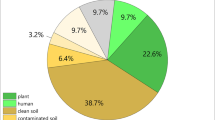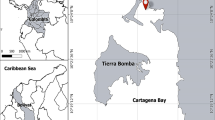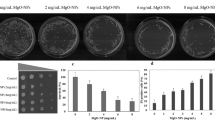Abstract
Microorganisms are particularly adapted to alterations in their environment. One of the global regulatory mechanisms involved in these adaptations is the stringent response. The unusual nucleotides, guanosine penta and tetraphosphates, (p)ppGpp act as alarmones of this response, heralding nutrient limitation and stressors. Marine bacteria encounter numerous stresses of sparse nutrient supplies and changes in physicochemical conditions. The aim of this work was to assess whether the stress conditions common in marine environment can induce the stringent response and what is a kinetic of this process. The representative bacterial species, Shewanella baltica, Acinetobacter johnsonii, Vibrio harveyi, and Escherichia coli were subjected to a variety of stressors. We analyzed the kinetics of (p)ppGpp synthesis by labeling in vivo nucleotides and analysis by thin layer chromatography. The (p)ppGpp accumulation followed the elevated temperature and amino acid starvation for all bacteria tested. The carbon and nitrogen limitation resulted in the response limited to V. harveyi and S. baltica. The DNA damaging agents induced the (p)ppGpp production in all strains, while osmotic stress did not result in significant alarmone synthesis. The representative marine bacteria species were shown to induce with varying extent the stringent response upon the onset of stress and limitation conditions. Importantly, the in vivo labeling and subsequent separation of the nucleotides by thin layer chromatography serves as a valid method for the analysis of the stringent response and (p)ppGpp accumulation in environmental bacteria.





Similar content being viewed by others
References
Amy PS, Pauling C, Morita RY (1983) Recovery from nutrient starvation by a marine Vibrio sp. Appl Environ Microbiol 45:1685–1690
Atkinson GC, Tenson T, Hauryliuk V (2011) The RelA/SpoT homolog (RSH) superfamily: distribution and functional of ppGpp synthetases and hydrolases across the tree of life. PLoS ONE 6:e23479. https://doi.org/10.1371/journal.pone.0023479
Belas R, Mileham A, Cohn D et al (1982) Bacterial luminescence: isolation and expression of the luciferase genes from Vibrio harveyi. Science 218:791–793. https://doi.org/10.1126/science.10636771
Braeken K, Moris M, Daniels R, Vanderleyden J, Michiels J (2006) New horizons for (p)ppGpp in bacterial and plant physiology. Trends Microbiol 14:45–54. https://doi.org/10.1016/j.tim.2005.11.006
Cashel M, Lazzarini RA, Kalbacher B (1969) An improved method for thin-layer chromatography of nucleotide mixtures containing 32P-labeled orthophosphate. J Chromatogr 40:103–109
Cashel M, Gentry DR, Hernandez VJ, Vinella D (1996) The stringent response in Escherichia coli and Salmonella typhimurium In: Neidhart FC. et al. (eds). Escherichia coli and Salmonella: Cellular and Molecular Biology. ASM, pp 1458-1496.
Dalebroux ZD, Svensson SL, Gaynor EC, Swanson MS (2010) ppGpp conjures bacterial virulence. Microbiol Mol Biol Rev 74:171–199. https://doi.org/10.1128/mmbr.00046-09
Doughari HJ, Ndakidemi PA, Human IS, Benade S (2011) The ecology, biology and pathogenesis of Acinetobacter spp.: an overview. Microbes Environ 26:101–112. https://doi.org/10.1264/jsme2.me10179
Farmer JJ III, Janda JM, Brenner FW, Cameron DN, Birkhead KM (2005) Genus 1. Vibrio Pacini 1854, 411AL. In Brenner DJ, Krieg NR and Staley JT (eds.). Bergey’s Manual of Systematic Bacteriology, 2nd edn, vol. 2. The Proteobacteria, part B, The Gammaproteobacteria, pp 494–546.
Flärdh K, Cohen PS, Kjelleberg S (1992) Ribosomes exist in large excess over the apparent demand for protein synthesis during carbon starvation in marine Vibrio sp. strain CCUG 15956. J Bacteriol 174:6780–6788. https://doi.org/10.1128/jb.174.21.6780-6788.1992
Flärdh K, Axberg T, Albertson NH, Kjelleberg S (1994) Stringent control during carbon starvation of marine Vibrio sp. strain S14: molecular cloning, nucleotide sequence, and deletion of the relA gene. J Bacteriol 176:5949–5957. https://doi.org/10.1128/jb.176.19.5949-5957.1994
Guardabassi L, Dalsgaard A, Olsen JE (1999) Phenotypic characterization and antibiotic resistance of Acinetobacter spp. isolated from aquatic sources. J Appl Microbiol 87:659–667. https://doi.org/10.1046/j.1365-2672.1999.00905.x
Guzow-Krzemińska B, Gąsior T, Szalewska-Pałasz A (2015) Phylogenetic relationship of the stringent response-related genes of marine bacteria. Acta Biochim Pol 62:773–783. https://doi.org/10.18388/abp.2015_1132
Jain V, Kumar M, Chatterji D (2006) ppGpp: stringent response and survival. Microbiology 44:1–10
Jensen KF (1993) The Escherichia coli K-12 “wild types” W3110 and MG1655 have an rph frameshift mutation that leads to pyrimidine starvation due to low pyrE expression levels. J Bacteriol 175:3401–3407. https://doi.org/10.1128/jb.175.11.3401-3407.1993
Kaempfer ROR, Magasanik B (1967) Effect of infection with T-even phage on the inducible synthesis of β-galactosidase in E. coli. J Mol Biol 27:453–468. https://doi.org/10.1016/0022-2836(67)90051-4
Karczewska-Golec J, Strapagiel D, Sadowska M et al (2016) Draft genome sequence of Shewanella baltica M1 isolated from brackish surface water of the Gulf of Gdańsk. Genome Announc 4(3):e00611–e00616. https://doi.org/10.1128/genomeA.00611-16
Kurath G, Morita RY (1983) Starvation-survival physiological studies of a marine Pseudomonas sp. Appl Environ Microbiol 45:1206–1211
Magnusson LU, Farewell A, Nyström T (2005) ppGpp: a global regulator in Escherichia coli. Trends in Microbiology 13:236–242. https://doi.org/10.1016/j.tim.2005.03.008
McGlynn P, Lloyd RG (2000) Modulation of RNA polymerase by (p)ppGpp reveals a RecG-dependent mechanism for replication fork progression. Cell 101:35–45. https://doi.org/10.1016/s0092-8674(00)80621-2
Mechold U, Malke H (1997) Characterization of the stringent and relaxed responses of Streptococcus equisimilis. J Bacteriol 179:2658–2667. https://doi.org/10.1128/jb.179.8.2658-2667.1997
Mechold U, Potrykus K, Murphy H et al (2013) Differential regulation by ppGpp versus pppGpp in Escherichia coli. Nucleic Acids Res 41:6175–6189. https://doi.org/10.1093/nar/gkt302
Moskot M, Kotlarska E, Jakóbkiewicz-Banecka J et al (2012) Metal and antibiotic resistance of bacteria isolated from the Baltic Sea. Int Microbiol 15:131–139
Nyström T, Olsson RM, Kjelleberg S (1992) Survival, stress resistance, and alterations in protein expression in the marine vibrio sp. strain S14 during starvation for different individual nutrients. Appl Environ Microbiol 58:55–65
Östling J, Holmquist L, Kjelleberg S (1996) Global analysis of the carbon starvation response of a marine Vibrio species with disruptions in genes homologous to relA and spoT. J Bacteriol 178:4901–4908. https://doi.org/10.1128/jb.178.16.4901-4908.1996
Owens L, Busico-Salcedo N (2006) Vibrio harveyi: pretty problems in paradise (Chapter 19). In: Thompson F, Austin B, Swings J (eds) The Biology of Vibrios. ASM Press, pp 266–280. https://doi.org/10.1128/9781555815714.ch19
Potrykus K, Cashel M (2008) (p)ppGpp: still magical? Annu Rev Microbiol 62:35–51. https://doi.org/10.1146/annurev.micro.62.081307.162903
Serrano R (1996) Salt tolerance in plants and microorganisms: toxicity targets and defense responses. Int Rev Cytol 165:1–52. https://doi.org/10.1016/s0074-7696(08)62219-6
Varik V, Oliveira SRA, Hauryliuk V, Tenson T (2017) HPLC-based quantification of bacterial housekeeping nucleotides and alarmone messengers ppGpp and pppGpp. Sci Rep 7:11022. https://doi.org/10.1038/s41598-017-10988-6
Ziemke F, Brettar I, Höfle MG (1997) Stability and diversity of the genetic structure of a Shewanella putrefaciens population in the water column of the central Baltic. Aquat Microb Ecol 13:63–74. https://doi.org/10.3354/ame013063
Acknowledgments
We thank Drs. Katarzyna Potrykus, Dariusz Nowicki, Monika Maciąg-Dorszyńska, and Grzegorz Cech for discussion, encouragements, and scientific advices.
Funding
This work was funded by National Science Centre, Poland (HARMONIA 2012/06/M/NZ2/00100 to ASP).
Author information
Authors and Affiliations
Corresponding author
Ethics declarations
Conflict of Interest
The authors declare that they have no conflict of interest.
Ethical approval
This article does not contain any studies with human participants or animals performed by any of the authors.
Additional information
Communicated by: Marek Switonski
Publisher’s note
Springer Nature remains neutral with regard to jurisdictional claims in published maps and institutional affiliations.
Electronic supplementary material
ESM 1
(DOCX 41 kb)
Rights and permissions
About this article
Cite this article
Milewska, K., Krause, K. & Szalewska-Pałasz, A. The stringent response of marine bacteria – assessment of (p)ppGpp accumulation upon stress conditions. J Appl Genetics 61, 123–130 (2020). https://doi.org/10.1007/s13353-019-00531-w
Received:
Revised:
Accepted:
Published:
Issue Date:
DOI: https://doi.org/10.1007/s13353-019-00531-w




